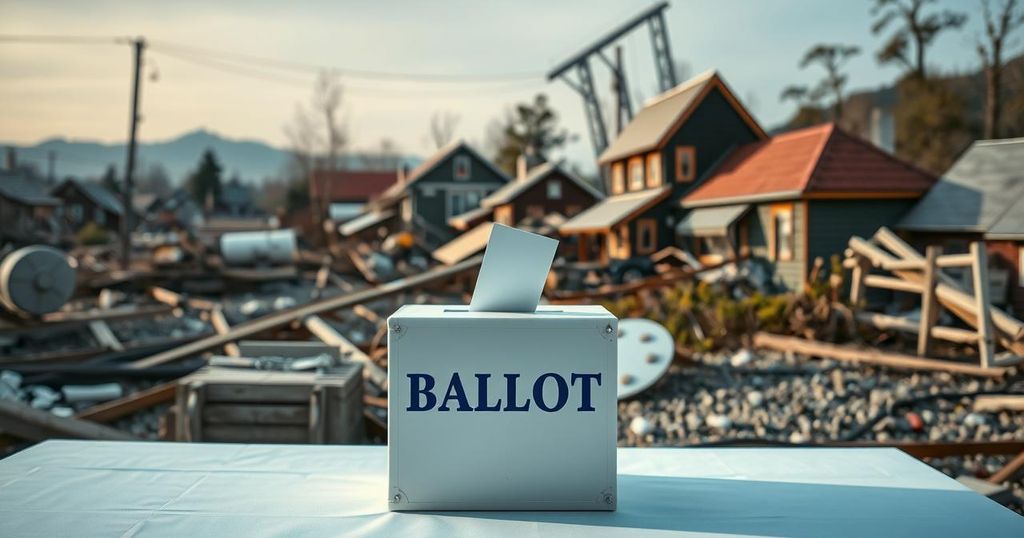Elections
Politics
ASIA, ASSOCIATED PRESS, AUSTRALIA, CHARLOT SALWAI, CHINA, CUBA, DEMOCRACY, DUKE, EUROPEAN UNION, GOVERNANCE, GOVERNMENT, LOWY INSTITUTE, MELBOURNE, MEXICO, NORTH AMERICA, OCEANIA, PACIFIC, PARLIAMENTARY SEATS, POLITICS, PORT VILA, RILEY DUKE, ROD MCGUI, SALWAI, SOUTH PACIFIC, UNITED NATIONS, VANUATU
Clara Montgomery
Vanuatu Conducts Snap Election Amidst Recovery from Earthquake
Vanuatu held a snap election following a devastating earthquake, with Prime Minister Charlot Salwai calling for early voting to avoid a no-confidence vote. The election was necessitated by political instability and occurred a month after a significant earthquake caused deaths and widespread displacement. Vote counting will determine which of the 217 candidates wins the 52 parliamentary seats.
Vanuatu conducted a snap general election on Thursday, initiated by Prime Minister Charlot Salwai’s decision to call for early voting, thereby avoiding potential no-confidence challenges against his fragmented coalition government. This election took place only a month following a devastating 7.3 magnitude earthquake on December 17, which resulted in the loss of 14 lives and left many injured, primarily in the capital, Port Vila, where the United Nations reported over 1,000 residents were displaced.
The polls were open for a duration of nine hours, and the counting of votes is expected to extend over several days until the winners among the 217 candidates vying for 52 parliamentary seats are determined. Salwai, who became Vanuatu’s fourth prime minister in four years, dissolved parliament in November and opted for this election to circumvent a possible no-confidence vote. The parliament’s dissolution mandated that the elections occur by January 16 at the latest.
Post-election negotiations will ensue among lawmakers to ascertain which parties can collaborate to establish a government. Vanuatu, home to 330,000 citizens residing across more than 80 islands, often faces instability within its governing bodies. Recently, the nation forfeited its European Union visa-free status due to security issues linked to its profitable citizenship-for-sale scheme amidst increasing debts, mainly owed to China.
Riley Duke, an analyst at the Lowy Institute in Australia, remarked that the early election diverts attention from pressing policy issues. He noted, “They’re at a very critical juncture in terms of their need to find stable revenue to pull themselves out of their debt situation.” Furthermore, he observed that frequent elections compel governments to prioritize immediate political gains over long-term policy development.
Vanuatu, an archipelago nation, has a history of political instability, often marked by frequent elections and shifts in governmental authority. The recent earthquake added strain to an already precarious economic situation, characterized by high debt levels and loss of critical trade freedoms. Prior to the earthquake, Vanuatu faced significant challenges regarding its citizenship trade and its implications on international relations, particularly concerning diplomatic and security standing with the European Union and creditor nations like China.
The snap election in Vanuatu reflects the backdrop of a nation grappling with natural disaster recovery, political fragmentation, and economic turmoil. The early polling, prompted by the Prime Minister’s desire to maintain control against potential no-confidence votes, underscores the ongoing instability that has plagued Vanuatu’s governance. The outcome of the elections will be pivotal in shaping the future direction of the country’s policies and economic recovery.
Original Source: www.mymotherlode.com








Post Comment